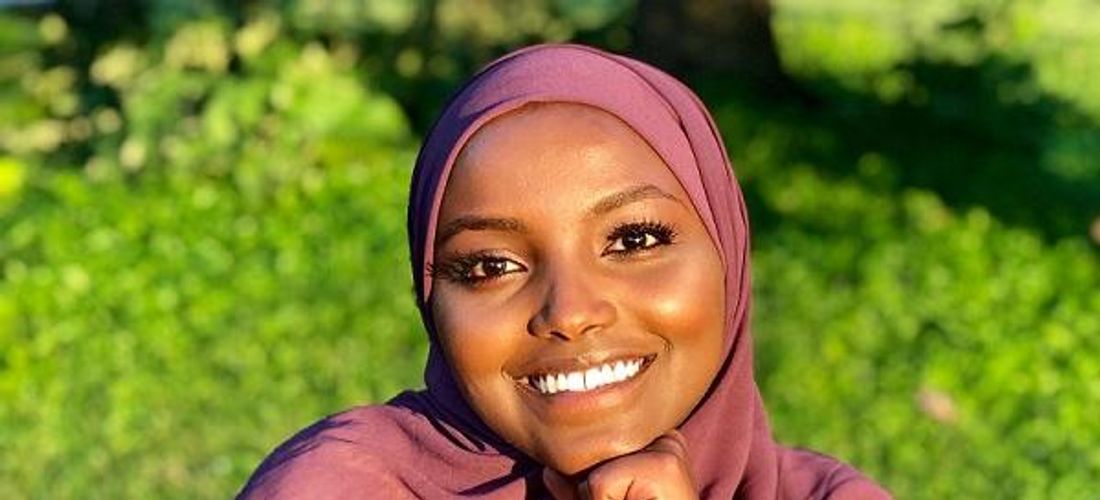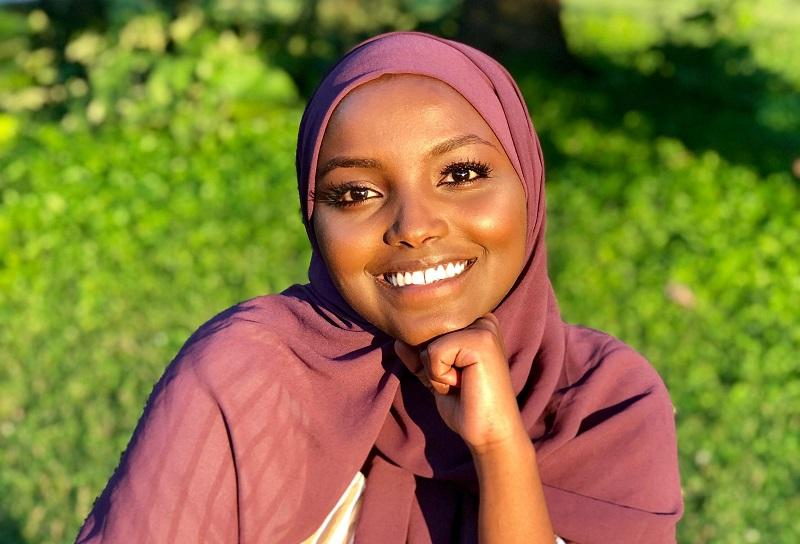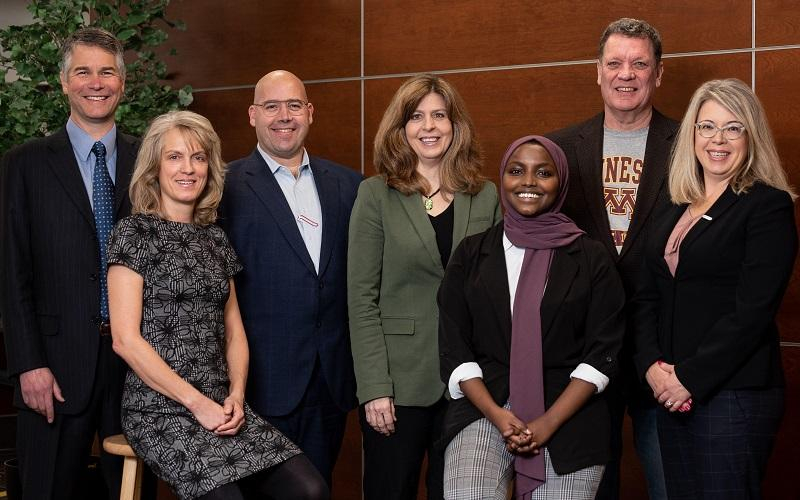How Minnesota City Council Member Nadia Mohamed is Making Intersectional History
Current Events
|
Mar 4, 2020
|
6 MIN READ

By Layla Abdullah-Poulos
If the 2016 presidential elections did anything positive, it motivated several Muslim women around the country to run for office, including Nadia Mohamed, who at the age of 23 won the at-large B council member seat in St. Louis Park, Minnesota. With our ongoing focus on empowered Muslim women making waves across the country in Black History Month in February into Women’s History Month in March, we are honored to feature Nadia’s amazing story.
Nadia, who earned her bachelor’s degree in human resources management, originally assisted in the search for a candidate to fill the St. Louis Park council seat before deciding to run for it herself. In 2019, she won a sweeping 63 percent of the vote, becoming an at large B council member in 2020. She intends to focus on issues in affordable housing, racial equity, climate action and youth engagement.
Nadia shared her perspectives about the challenges for people of color in politics and being true to one’s self at all times.

St. Louis Park City Council member Nadia Mohamed; Image source: Nadia Mohamed
What challenges do you encounter, inside and outside of Muslim communities, from people who are not seeing you in a political capacity?
Outside of the Muslim communities, most of the time I am the first Muslim they are probably meeting or [with whom they are] having these [political] interactions. So, I am a representation of all that is Muslim for them. Good or bad, I am. I am usually the only voice of color in conversations about racial equity, especially among my colleagues.
Inside the [Muslim] community, [people] are very supportive and excited, [often] to the point where they think I can do things that I can’t. Everybody is expecting that all of a sudden I build houses for everybody and not understanding that there is a lot of red tape you have to go through. You can’t just build a house.
Do you find that as a Black Muslim woman there is a certain level of pride and excitement about you, but that people have a problem when you assert your authority?
Oh, yes. We are all living in a patriarchal society and focused on gender roles. Being a woman – and Black and Muslim on top of that – when I [exhibit] a certain authority, it seems like I am pushing my boundaries and come off as “aggressive.”
It also [compounds with me being] younger. In the Somali culture where I am from, it is very hierarchical and based on age. So if I act with authority to someone older than me, they may feel like, “Who does this little girl think she is?” There is this whole cultural aspect to it, all around me in every part of my identity. So, I do feel that some people may feel threatened by the sudden authority. At the same time, you are there for the people, and you have to live and speak your truth. I am an elected official. I have an election certificate. This authority was given to me by the people. So, I’m coming with it.
A lot of rooms I’m in (outside of Muslim communities), I am often underestimated. I use it to my advantage sometimes and come out swinging. You have to [go in] holding your ground and with the values you promised your constituents until you are no longer in office.
Do you think certain stereotypes about Muslim women impact your work?
Absolutely. I think [people] expect me to be a little more submissive and [embody different stereotypes], like being quiet, reserved and things like that. They don’t necessarily have a rude awakening, but they do have this sense of “Oh, there is a voice and intelligence behind that.” I think when you are the first of many, a lot of people stop at your identity and do not explore anything more. A lot of what I have been saying since I got elected is don’t stop at my identity. I have a lot more behind me than what you see.
It is difficult for me to answer just on the basis of being Muslim, because a lot of my identities intermingle. So, I don’t know [why] people are stereotyping me – whether I am Black or a woman or young. I don’t know where their stereotype is coming from. I just know that there is a certain expectation and stereotype that is placed on me that I constantly have to keep breaking.

How historical do you consider your win?
Every time I sit at my table, I feel such an honor. It has been two months, and it has not gone away. You carry the weight of so many people who are not getting access to this type of power or opportunity. It’s quite historic. I like the idea that I am the first and will continue to bring in more unique voices.
People say historic and automatically assume that everything that is wrong with society – racism, sexism, everything – is all solved and [it’s] all kumbaya and hand-holding, and [that] we’re perfect. I want people to celebrate me and the accomplishment that we have gone so far to [attain] but not pat our backs for doing the first step of many.
Have any American Muslim women mentored you in politics?
A lot of the connections I have made were throughout my campaign or after I got elected. An important one to me is with Safiya Khalid. She was elected [to City Council in Lewiston, Maine] at the same time as me [and also] at the age of 23. We popped up all over Twitter together. We connected over the phone and met in Washington, D.C. I went to Maine when she had a celebration, and she came to Minnesota during my celebration as well.
We share knowledge and feelings. Mentorships have been an important part of my [development], and I am getting that in my own city. But, to have someone who is going through the same thing is rare to find, and [it’s] even more rare to build a friendship on it.
What are some of the ways you optimize social media to expose your work and make an impact?
I handle social media like a normal person and not a celebrity. I think there is a very clear distinction between handling social media as a means to get information and as a [way] to make a name for yourself. It gets across and gets information out so fast. It is important, but it can easily be what takes you down. It’s a double-edged sword.
When I was running, social media helped my campaign so much. People out in the middle of nowhere were saying, “Oh, my God. Congratulations. I’m rooting for you. I can’t vote for you, but I am rooting for you.” When I first began [running for office], a lot of my voters were on Facebook because they are of an older generation. So, I put my information out on Facebook. Twitter – I use it. Instagram, I use it a lot more. So, I’ll have to say it’s a combination of Facebook and Instagram.

Nadia Mohamed with fellow St. Louis Park City Council members; Image source: Nadia Mohamed
On Instagram, I show people my cute self. I normalize what it means to be a working Muslim woman of color and everything that is potentially marginalized in American society. Every part of my identity is marginalized, and I’m normalizing that. That is something I use Instagram for, showing a clear picture [and] putting out positive lighting of things in my day-to-day life.
How can Muslim women impact the current political climate?
There are numerous ways. The youth are ups in arms about climate change. We want to make sure that when the people who are currently living are [gone], we’re passing a better future for the next generation. Climate change is our legacy to the younger generation. One of the things I ran on was climate action. In St. Louis Park, we want to be carbon-neutral by 2040.
What would you like to tell people who want to follow in your footsteps?
Be authentic. People love authenticity. Always speak your truth. Start making connections and start them early. Don’t go around using people, but always be on the lookout who can help you [accomplish your goals] and who are your allies. Start gathering your support system.
Subscribe to be the first to know about new product releases, styling ideas and more.
What products are you interested in?

